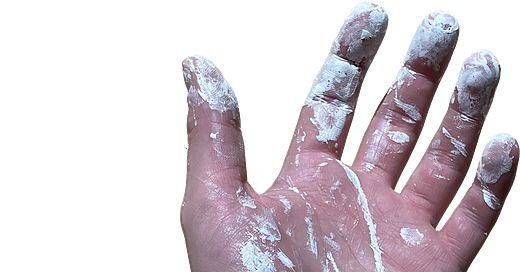For my first few days at my new job at Spago I would find myself aimlessly walking around the restaurant floor waiting for someone to come around. I paced back and forth through the main dining room with new faces occasionally passing me by with little head nods of affirmation that I was indeed in the right place. Each new day I had something to add to the list of things to do when I figured out that my manager forgot to schedule me 2 hours later than my starting time. I was instructed to fold some napkins in anticipation of a party—hot dog, hot dog, half from one side, a quarter from the other side, fold, fold, repeat. I folded for 45 minutes or so until I had too many folded napkins. I was becoming an expert in folding napkins this specific way. 2 hours after that, I unfolded every single one and did them a different way per the manager's request.
It was a nice reminder of the reality of working in the fine-dining restaurant business.
You can do everything right and still be wrong.
When Jimmy Iovine was just starting his career at 20 years old, he was flown to Los Angeles from Brooklyn, New York to set up the recording studio for John Lennon and Roy Cicala. He had never been on a plane before, never been to a hotel, and never seen any big houses like the one he had to go to for setup instructions from Phil Spector. Iovine couldn’t see Phil as he was upstairs as he yelled, “8 musicians, 3 guitars, 1 drummer…” Jimmy set up the studio in pristine condition.
“I made it look like a painting… you couldn’t trip if you wanted to trip,” Iovine explained.
On recording day, the musicians piled in. 3 musicians show up, then another 4, then another 3, 2 more, 5 more, until 36 musicians show up for a live recording session. It was quite literally a shitshow for Jimmy. He did everything right, but everything went wrong anyways.
In another fantastic conversation, I listened to last week with Van Neistat, a spirited man, and Jack Conte, the founder of Patreon, they talk about the relationship between quantity and quality.
Quantity yields better quality.
I used to think of quality over quantity no matter what. What is the point of putting something into the world if it is not of quality? A flip switched.
How do I expect to make quality work if I don’t make enough of the work? Pablo Picasso made thousands of works, so did Clyfford Still, Van Gogh, and so on, and they didn’t know which works of theirs would be talked about paintings for millennia.
Quality lasts… and you can only achieve quality with quantity.
The moral of the story is that as an artist, a creator, an independent thinker, whatever you call yourself, it is of the utmost importance that we understand that to be any good at what you do, you gotta make a shit load of it. This is not to say you can’t be detailed or edit beyond your wildest beliefs.
Edit.
Take your time.
Be intentional.
Practice.
Do everything you want to do and do it well.
But finish the work. Have an end date for your project. Start something new, rinse, and repeat.
So tomorrow, the next day, and in the foreseeable future, when I find myself folding napkins at Spago, I'll remember that what truly matters is not whether my work will be used, but the fact that I am engaged in the work itself. Folding napkins becomes a metaphor for setting up the recording studio in pristine condition, painting a masterpiece, or dedicating time to master my craft. The action I take plays an active role in the future success of my work. To me, this outweighs the fear of making mistakes or being wrong.





Brilliantly written sir. And what a marvelous outlook to have!
Agree!!! Love reading this to just remember that there is meaning in everything we do, if we are open to it!